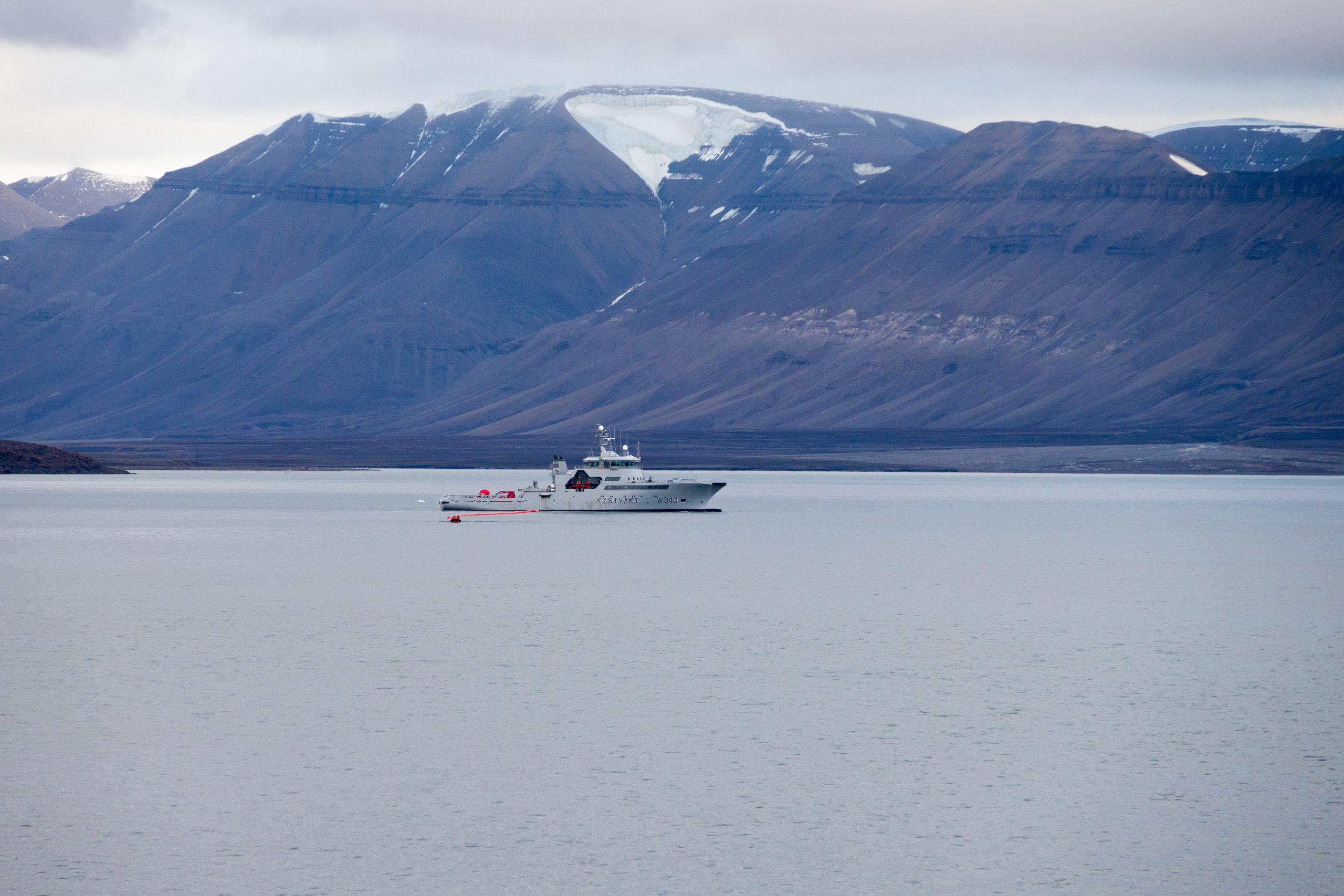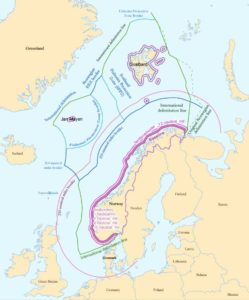How a standoff over cod could test the boundaries of the Svalbard Treaty
Norway and the EU disagree over how much cod EU fisherman can catch in Svalbard waters — and over who gets final say.

A dispute over 10,000 tons of cod that until now has been waged between diplomats in Oslo and Brussels risks spilling over to the high seas in the coming days, when EU fishing vessels are predicted to reach what Norway says is their limit for the year in the seas around Svalbard.
Should EU fishermen — primarily from Denmark, the Netherlands, Germany and Spain — seek to catch more than the nearly 18,000 tons Norway has set as their quota, they risk having their vessels seized by the Norwegian Coast Guard and their owners fined.
That the vessels may continue to fish stems from the fact that Brussels has told them they are allowed to catch 28,431 tons of cod in what Oslo defines as the Svalbard Protection Zone, extending some 200 nautical miles around the archipelago.
The quota is in line with what the EU caught last year, and based on what the countries now making up the union fished there before the zone was established 1972. But last year’s quota, according to the Norwegians, does not include what had been the United Kingdom’s share of the catch.

This year, Britain is fully out of the EU, and they have been granted a 5,500-ton quota in the Svalbard Protection Zone. The same amount has been deducted from the EU’s limit.
Brussels argues that the move runs counter to the 1920 treaty that grants Oslo control over Svalbard while at the same time requiring it to share its resources with any country that has signed the treaty.
Oslo, for its part, counters that the treaty does not apply in the Svalbard Protection Zone, and that, by catching more than it is permitted, Brussels is setting quotas in waters that are controlled by another country.
“The EU has no right to under international law to establish quotas in maritime areas under Norwegian jurisdiction, in contravention of Norwegian regulations,” the Norwegian Foreign Ministry told EU officials in a letter dated May 4.
[Norway objects to the EU’s granting cod quotas in Svalbard waters]
In addition to warning that violators will be “arrested and prosecuted,” the letter threatens to block the EU’s long-standing efforts to obtain observer status in the Arctic Council.
“[T]he criteria for admitting observers to the Arctic Council include recognition of Arctic [s]tates’ sovereignty, sovereign rights and jurisdiction in the Arctic.”
Brussels, however, argues that the Svalbard Treaty does not give Norway the right to restrict access to Svalbard fisheries. And that by giving itself and Russia 400,000-ton quotas — on the argument that they are part of an agreement related to shared Barents Sea stocks — Oslo is committing an “international wrongful act” that ignores the treaty’s “equal access” requirement.
“Norway cannot set aside this prohibition to adopt discriminatory measures by including the Svalbard waters in arrangements that apply to other maritime zones generated by the Norwegian mainland,” the European Commission, the union’s executive arm, stated in a later of its own on June 28.
[Russia protests after Norway detains trawler near Svalbard]
Who is right depends on who is reading the treaty, but insiders say it appears that only Norwegians see things their way.
Under the treaty, Norway has “full and absolute sovereignty” over Svalbard as well as the right to administer its natural resources. But, in return for accepting this, other countries are allowed to exploit “all maritime, industrial, mining or commercial enterprises both on land and in the territorial waters.”
This is where it gets tricky; for while land is pretty easily defined, the international definition of territorial waters has changed since the treaty was adopted. At the time the treaty was written, a country’s territorial waters extended three nautical miles from its coast. Since then, international consensus is that territorial waters extend to 12 nautical miles. Countries have also come to agree that they have exclusive rights to exploit maritime resources as far out as 200 nautical miles from their coasts.
Norway’s interpretation — which a 2019 Norwegian supreme-court decision supports — is that the treaty ends at 12 nautical miles; everything beyond that is Oslo’s dominion.
[Russia complains of Norwegian restrictions on its activities on Svalbard]
Yet, Norway, rather than provoke an outright conflict by declaring the area its exclusive economic zone, has chosen to establish the Svalbard Protection Zone and mete out fishing privileges based on how much fish the countries looking to operate caught before 1972.
That has managed to keep the peace, but a letter sent by Europêche, a lobby group for Europe’s fishing industry, to the European Commission this January suggests fishermen may no longer be willing to accept the situation.
Describing the dispute over the quota as part of the “increasing tension” between the EU and countries that grant fishing quotas, it called on the commission to step in.
“Norway (and Russia) continue to play an important role in the administration of [A]rctic waters and they have undoubtedly contributed to an improved management of fisheries in the Barents Sea,” the letter states. “It must be said however, that Norway often also seeks to secure or even prioritize their own national interests, while completely ignoring historical track records of EU member states in the area.”
This is not the first time Norway and the EU have run afoul of each other in the waters around Svalbard. In 2015, a dispute over snow crabs that ended with the supreme-court decision in Norway’s favor, tested the limit of the treaty. And while there are significant economic interests tied to both species, it has been suggested that the legal challenges over who has the right to harvest have been forced in order to set precedents for who has the rights to potentially more lucrative offshore resources, including oil and natural gas.
Andreas Østhagen, a Norwegian academic, reckons that an uncertain future for oil makes this unlikely. Instead, he thinks that — for the EU at least — other issues, like environmental protection, are the motivation.
“There are those in the EU who want to draw as much attention to this as possible,” he said. “Environmental issues related to the Arctic are concern for a lot of members of the European Parliament, and they don’t think Norway is doing enough to protect it.”
For that reason, he believes that the EU — which continues to issue crab-fishing licenses, despite losing the court case — will be increasingly unlikely to yield ground in disagreements related to Svalbard.
“This is a matter of legal principle,” he says. “Should the matter go to court, accepting the lower quota will weaken its position.”